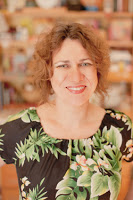This was going to be a post for NZ Speculative Fiction Blogging Week 2010, but Real Life intervened, and I don’t have Sandeep Parikh’s Bollywood-style fight moves (from 1:50) to drive it away.
So, where were we? In Part 1, I talked about the options for getting short speculative fiction published in New Zealand. In Part 2, it’s time to take on the longer stuff: novels.
New Zealand publishers have a track record of publishing speculative fiction novels for children and young adults – indeed, some of our most popular and successful writers in the field, such as Margaret Mahy, write speculative fiction.
But, rightly or wrongly, most New Zealand publishers believe that New Zealanders will not buy adult speculative fiction novels written by New Zealanders. I heard this at first hand from Larain Day, then of HarperCollinsNZ, while taking part in a discussion on RadioNZ (which also featured Helen Lowe) about New Zealand SF and fantasy.
We ran out of time before I could ask the obvious question: if publishers don’t publish NZ speculative fiction, how do they know New Zealanders won’t buy it?
Part of the issue, I think, is that, because New Zealand publishers don’t usually have speculative fiction specialists on their staff, they don’t really know the range that modern science fiction, fantasy and horror encompasses. Ironically, this also means that works that I would classify as science fiction are sometimes published in New Zealand as general/literary fiction. This is especially true of near-future SF, social SF, and satirical SF.
On the other hand, your galaxy-spanning space opera or your continent-spanning fantasy would be doing very well to find a home with a mainstream New Zealand publisher; then again, those are the novels that you have the best chance of selling to an overseas publisher.
But all is not lost! The estimable Random Static Ltd, far from resting on their laurels after publishing NZ short speculative fiction collection A Foreign Country, are now about to publish sf novel Barking Death Squirrels, by Wellington author Douglas A. Van Belle. (What a great title – I wish I’d thought of it! Give it to Smeagol – I wants it! It’s mine, I tells you, my precious!)
I hope Barking Death Squirrels sells lots of copies, both for the sake of publisher and author, and to show that yes, it can be done: SF written here and published here can be sold successfully here. I’m going to interview Doug Van Belle for this blog… just as soon as I get round to sending him the questions.
Incidentally, Random Static has also put out a call for novella submissions. Can they do no wrong?
On The Other Hand: A Defence Of New Zealand Publishers
I’ve been critical above about NZ publishers’ reluctance to publish adult SF. But, when you look at the economics of the publishing business, a certain level of risk-aversion is understandable. It costs publishers a lot of money to publish a book: it has to be bought (i.e. the author has to be paid, which in NZ usually entails a modest advance plus a royalty of around 10% of retail); it has to be edited, and a good editor can make all the difference; it has to be designed; it has to be printed, which involves making a difficult guess about the size of the print run; and it has to be sent to reviewers so they can review it by the release date, and to bookshops so that the eye-catching displays of the book greet the eager buyer’s eye at the time when publicity for the book is at its maximum. (I can tell you from experience that a good review won’t do you much good if your book doesn’t reach the bookshop until a fortnight after the review was published.)
Most books won’t be hits. A few will, and they subsidise the rest. And, in my experience, distribution – the physical process of getting the printed books out of the warehouse and into the bookshops at the right time – is the part of the process that is most likely to break down.
The current model of publishing, distribution and sales has been around since the Great Depression. It still makes surprisingly little use of new technology. NZ publishers are beginning to take steps into print on demand technology and ebooks, but at least until these methods are more established, the big publishers have little option other than to be cautious about the books they choose to publish. There’s a reason so many books are published here about All Blacks, kitchens, and gardens.
If you are interested in these issues from a publishing industry point of view, check out the Weekend Web Reading posts on Helen Heath’s blog. Helen is a poet who works as a publicist for Victoria University Press, so she sees both sides of the story. She also has some very good advice on the use of social media.

